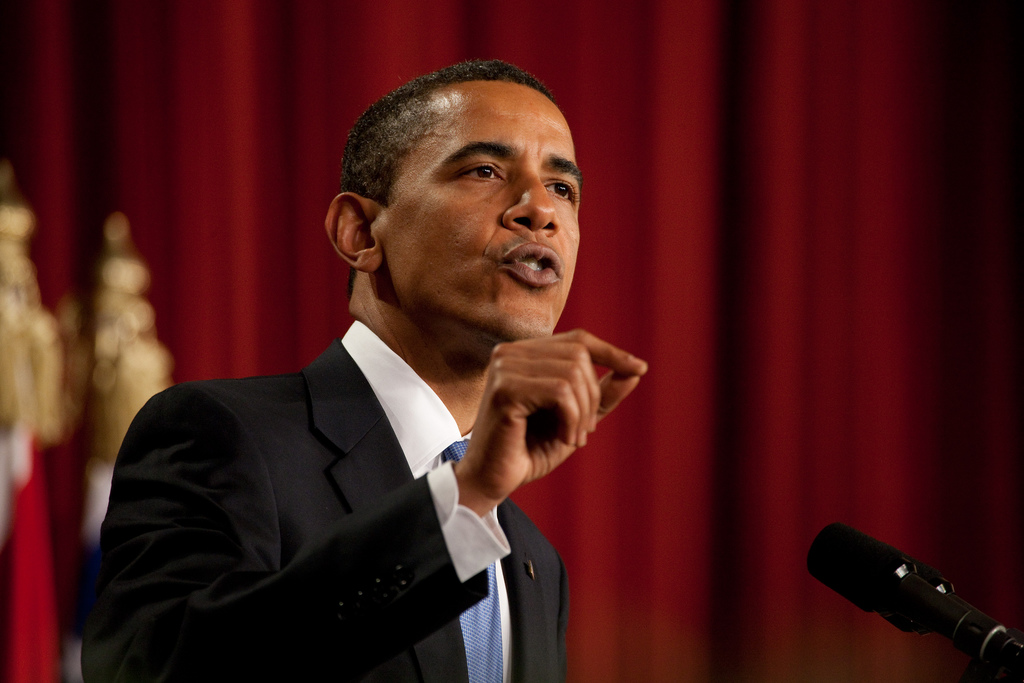 Photo: White House
Photo: White House
No one expected President Barack Obama’s speech in Cairo today to focus on climate change, and it didn’t. Obama didn’t use the words “climate” or “environment,” but rather talked about the usual Middle East challenges — the Israeli-Palestinian conflict, the wars in Iraq and Afghanistan, Iran’s nuclear ambitions, the distrust of American influence, and the struggles of democracy in the region.
The Middle East won’t be immune from the effects of climate change, however, and a hard-core environmentalist might argue Obama should have used this opportunity to remind the region that climate could exacerbate or trump all of its current problems.
Still, Obama did call out clean water, clean energy, and green jobs as he spoke about how the well-being of the United States and the Muslim world are linked. Whitehouse.gov has the full text of his speech, and video is below, but here are the relevant excerpts:
I know that for many, the face of globalization is contradictory. The Internet and television can bring knowledge and information, but also offensive sexuality and mindless violence into the home. Trade can bring new wealth and opportunities, but also huge disruptions and change in communities. In all nations — including America — this change can bring fear. Fear that because of modernity we lose control over our economic choices, our politics, and most importantly our identities — those things we most cherish about our communities, our families, our traditions, and our faith.
But I also know that human progress cannot be denied. There need not be contradictions between development and tradition. Countries like Japan and South Korea grew their economies enormously while maintaining distinct cultures. The same is true for the astonishing progress within Muslim-majority countries from Kuala Lumpur to Dubai. In ancient times and in our times, Muslim communities have been at the forefront of innovation and education.
And this is important because no development strategy can be based only upon what comes out of the ground, nor can it be sustained while young people are out of work. Many Gulf states have enjoyed great wealth as a consequence of oil, and some are beginning to focus it on broader development. But all of us must recognize that education and innovation will be the currency of the 21st century — (applause) — and in too many Muslim communities, there remains underinvestment in these areas. I’m emphasizing such investment within my own country. And while America in the past has focused on oil and gas when it comes to this part of the world, we now seek a broader engagement …
… On science and technology, we will launch a new fund to support technological development in Muslim-majority countries, and to help transfer ideas to the marketplace so they can create more jobs. We’ll open centers of scientific excellence in Africa, the Middle East and Southeast Asia, and appoint new science envoys to collaborate on programs that develop new sources of energy, create green jobs, digitize records, clean water, grow new crops …
… We have a responsibility to join together on behalf of the world that we seek — a world where extremists no longer threaten our people, and American troops have come home; a world where Israelis and Palestinians are each secure in a state of their own, and nuclear energy is used for peaceful purposes; a world where governments serve their citizens, and the rights of all God’s children are respected. Those are mutual interests. That is the world we seek. But we can only achieve it together.
Watch the (55-minute) speech:


